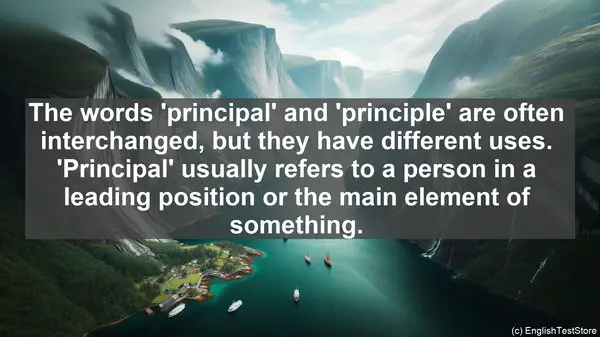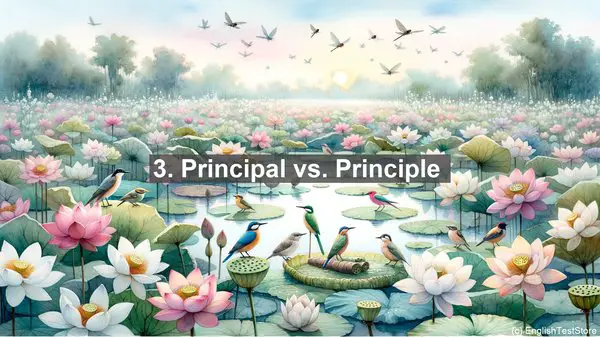Introduction
Welcome to today’s lesson. As students in the field of rehabilitation sciences, it’s crucial for us to have a strong grasp of the terminology we use. However, there are certain words that often lead to confusion. Today, we’ll be discussing the top 10 commonly confused words in our field, and by the end of this lesson, you’ll have a clearer understanding of each of them. So, let’s dive in!

1. Affect vs. Effect
One of the most frequently confused word pairs is ‘affect’ and ‘effect.’ ‘Affect’ is usually used as a verb, meaning to influence or produce a change. On the other hand, ‘effect’ is commonly a noun, representing the result or consequence of an action. Remember, ‘affect’ is the action, and ‘effect’ is the end result.
2. Complementary vs. Complimentary
The words ‘complementary’ and ‘complimentary’ may sound similar, but they have distinct meanings. ‘Complementary’ refers to something that completes or enhances another, while ‘complimentary’ means expressing praise or giving something for free. So, when discussing two things that go well together, it’s ‘complementary,’ and when someone is being kind or giving something for free, it’s ‘complimentary.’
3. Principal vs. Principle
The words ‘principal’ and ‘principle’ are often interchanged, but they have different uses. ‘Principal’ usually refers to a person in a leading position or the main element of something. On the other hand, ‘principle’ is a fundamental truth or a code of conduct. So, if you’re talking about a person in charge, it’s ‘principal,’ and if it’s a guiding belief, it’s ‘principle.’
4. Stationary vs. Stationery
Here’s another pair that causes confusion: ‘stationary’ and ‘stationery.’ ‘Stationary’ means not moving or fixed in one place, while ‘stationery’ refers to writing materials. Remember, the ‘a’ in ‘stationary’ stands for ‘not moving,’ and the ‘e’ in ‘stationery’ stands for ‘envelope’ or ‘writing materials.’
5. Elicit vs. Illicit
The words ‘elicit’ and ‘illicit’ have completely different meanings. ‘Elicit’ means to draw out or evoke a response, while ‘illicit’ refers to something that is illegal or forbidden. So, if you’re trying to get a response, it’s ‘elicit,’ but if it’s something against the law, it’s ‘illicit.’
6. Farther vs. Further
When it comes to distance, ‘farther’ and ‘further’ are often used interchangeably, but there’s a slight difference. ‘Farther’ is used for physical distance, while ‘further’ is more about metaphorical or figurative distance. So, if you’re talking about how much physical ground is covered, it’s ‘farther,’ but if it’s about advancing in a non-physical sense, it’s ‘further.’

7. Than vs. Then
The words ‘than’ and ‘then’ are homophones, which means they sound the same but have different meanings. ‘Than’ is used for making comparisons, while ‘then’ is about time or sequence. So, if you’re comparing two things, it’s ‘than,’ but if it’s about what happens next, it’s ‘then.’
8. Accept vs. Except
The words ‘accept’ and ‘except’ may look similar, but they have distinct uses. ‘Accept’ means to receive or agree to something, while ‘except’ is used to exclude or leave out. So, if you’re agreeing or receiving, it’s ‘accept,’ but if you’re excluding, it’s ‘except.’
9. Allusion vs. Illusion
The words ‘allusion’ and ‘illusion’ are often confused, but they have different meanings. ‘Allusion’ is an indirect reference, while ‘illusion’ is something that deceives or misleads. So, if it’s a reference or hint, it’s ‘allusion,’ but if it’s something that tricks the senses, it’s ‘illusion.’
10. Continual vs. Continuous
The words ‘continual’ and ‘continuous’ are similar, but they represent different concepts. ‘Continual’ means happening repeatedly but with breaks in between, while ‘continuous’ is something that goes on without interruption. So, if there are breaks or intervals, it’s ‘continual,’ but if it’s non-stop, it’s ‘continuous.’
